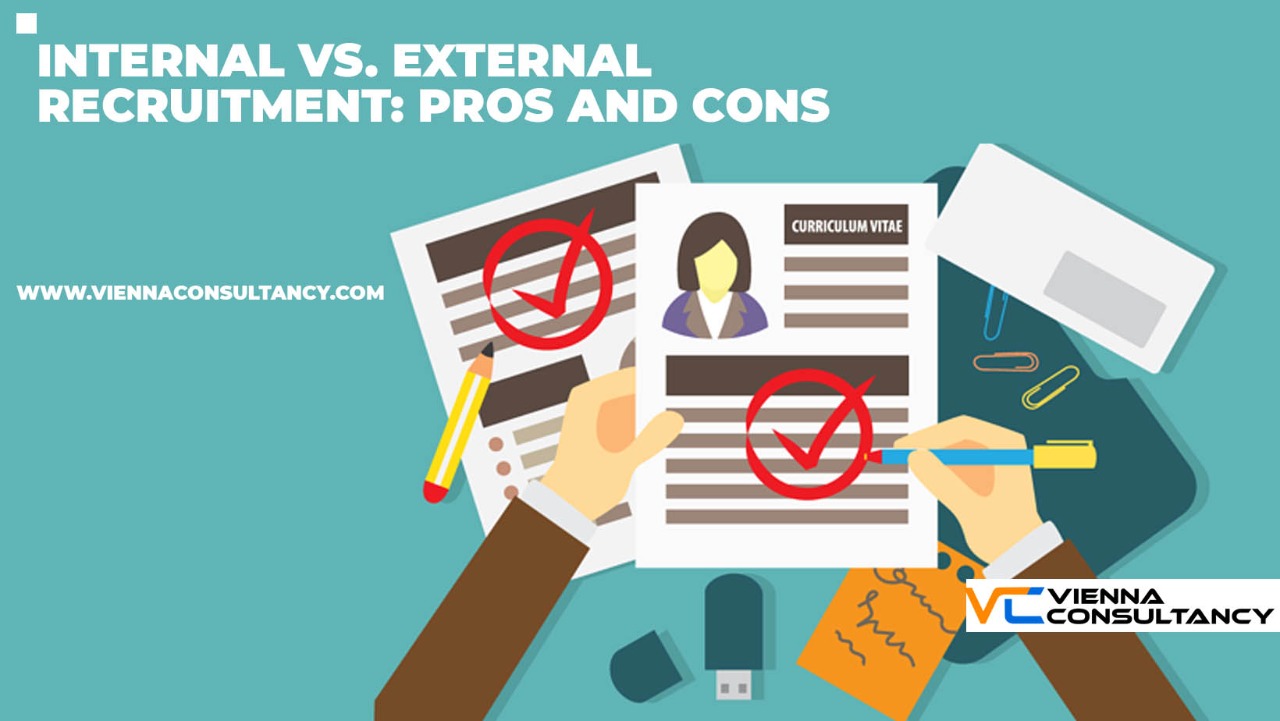External and internal hiring are the two main types of the hiring process that most organizations follow. Having an efficient hiring process can ensure that a company is having the best HR management team and that its employees are well capable and having the abilities to complete the new challenges that they face at their workplace.
If you’re trying to decide which system should promote internal employees or hire new professionals to fill roles within an organization, it’s very much important that you understand the difference between internal and external hiring processes.
What is Internal Hiring?
Internal hiring is the process in which a company chooses to promote a professional who has been already working for your organization to choose a new job role.
This may happen when a professional shows interest in an open position within the organization, or if the management professionals feel an employee is a good fit for the job role. And this can also occur when an employee transfers to a role in a new department or grabs a new promotion.
Sometimes, HR managers and their teammates share job postings with internal employees before making it a public announcement. This means that they are allowing internal employees to receive first consideration for the position.
What is External Hiring?
External hiring is a process in which companies recruit professionals from outsides to fill a certain job role. This is a common hiring method, as it allows companies to grow and provide different career opportunities to new professionals in the workforce. The external hiring process involves advertising a job description on popular job search websites and interviewing candidates and all the important activities that are included during the recruitment drives.
Pros of Internal Hiring-
If you know you’ve got a candidate that is having a full potential, and that can be proved a good choice for this job role then internally promoting them could be the best decision that you can take.
Here’s we will discuss why:
They Already Know Your Organization-
They’ll have to learn how to perform their new job roles and responsibilities, but they’ll already be used to the work culture of your company, you’ll know they’re a good fit and you won’t have to be involved in any kind of onboarding process.
They Are Well Known for the Rules and Regulations –
It takes some time for new candidates to get familiar with the work culture and rules of an organization. Mistakes are part of the learning but they can disrupt the flow of work.
By hiring internally your employee can get started immediately.
Since the other team members already know the employee too, they’ll also be comfortable with them as compared to a new candidate.
Cons of Internal Hiring-
While internal recruitment has its advantages, these do come balanced with some disadvantages that you’ll also need to think about before choosing between internal hiring and external hiring.
You might benefit from a fresh perspective
The other side of knowing the rules is that current employees may not see opportunities or spot flaws in processes in the same way that a new pair of eyes might.
Risk of Broken Hiring-
If there is more than one current staff member that you choose for the new job role, those who are unsuccessful may decide to leave and your hiring process may be affected badly.
Limited Talent Pool –
If you choose a candidate through internal hiring then you will have a limited talent pool of candidates. The wider you cast the net the more diverse potential talent you’ll find for the job role of your organization.
Pros of External Hiring-
Diversity in Staff-
Recruiting external hires to join the company allows for the opportunity for different professionals to provide fresh as well as new ideas to the company.
They can also help enrich the company’s culture. If a company needs a change, then adding external hires to your staff is the best option.
Bringing New Skills-
External hiring often brings new skills to the company by choosing professionals with a diverse set of qualifications. An external hire might already have all the qualities and qualifications they need to succeed in the job role. With their fresh insight and new skills, external hires can also solve problems quickly.
Cons Of External Hiring-
Increases Hiring Cost-
As we all know External hiring often costs more than internal hiring because it requires more training, and internship programs along with the time and effort spent during the selection process of candidates. If you choose the external hiring process then it also requires HR departments to advertise the job posting on different platforms, it can be more cost-effective to hire internal candidates.
Requires Longer Training Sessions-
External hires usually need longer training periods than internal hires, because they’re the new candidates and are less familiar with the company’s culture and policies. You need to create more effective training programs to ensure new hires can adapt to the company’s culture and their job duties quickly. With better training programs, external hires can feel more confident in their roles, which helps in the productivity goals of the organization.
Previous Posts: Why Companies Choose a Best IT Staffing Partner
How to Make a Great First Impression at a New Job
How Consulting Firms Can Turn Into Sustainable Consulting Firms






